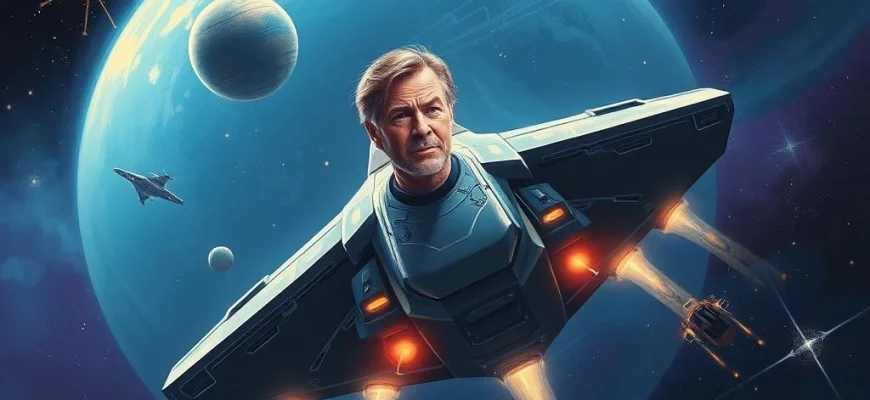If you loved 'Shatner in Space' (2021), a captivating documentary following William Shatner's real-life journey to the stars, you're in for a treat. This article explores 10 similar movies and shows that capture the wonder of space exploration, celebrity adventures, and awe-inspiring cosmic journeys. Whether you're a sci-fi enthusiast or a fan of Shatner's iconic charm, these picks will keep you entertained and inspired.
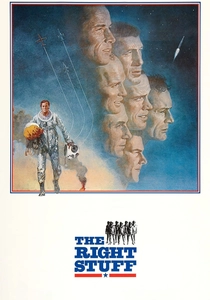
The Right Stuff (1983)
Description: This film explores the early days of the U.S. space program, focusing on the Mercury Seven astronauts and their personal and professional challenges. It shares a theme of human perseverance and the spirit of exploration.
Fact: The movie was based on Tom Wolfe's book of the same name, which was a bestseller. It won four Academy Awards, including Best Original Score.
 Watch Now
Watch Now 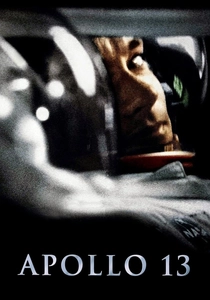
Apollo 13 (1995)
Description: A gripping true story of survival and ingenuity in space, highlighting teamwork and problem-solving under extreme pressure. It captures the tension and drama of space missions.
Fact: The famous line 'Houston, we have a problem' was slightly altered from the actual quote for dramatic effect. The film was shot in a reduced-gravity aircraft to simulate weightlessness.
 Watch Now
Watch Now 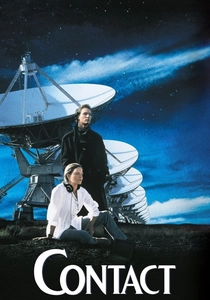
Contact (1997)
Description: A thought-provoking sci-fi film about the search for extraterrestrial intelligence, blending scientific rigor with philosophical questions about humanity's place in the universe.
Fact: The movie was based on Carl Sagan's novel, and he worked on the screenplay before his death. The film's depiction of radio astronomy was praised for its accuracy.
 Watch Now
Watch Now 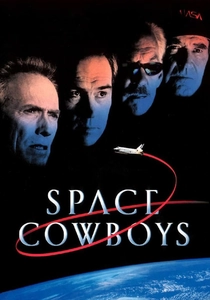
Space Cowboys (2000)
Description: A mix of adventure and humor, this film follows a group of aging pilots who get a chance to fulfill their dream of going to space, blending nostalgia with the thrill of exploration.
Fact: The movie's premise was inspired by real-life astronaut John Glenn, who returned to space at age
 Watch Now
Watch Now 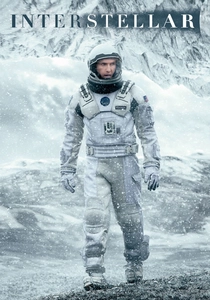
Interstellar (2014)
Description: A sci-fi epic that blends hard science with emotional storytelling, exploring themes of love, time dilation, and humanity's quest for survival beyond Earth.
Fact: The movie's black hole visualization was based on equations provided by physicist Kip Thorne, leading to a scientific paper. Hans Zimmer's score was composed before the script was finished to inspire the filmmakers.
 Watch Now
Watch Now 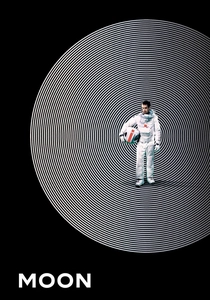
Moon (2009)
Description: A psychological sci-fi drama about isolation and identity, set on a lunar base. It explores the mental toll of long-term space missions and the ethics of cloning.
Fact: The film was made on a modest budget but received critical acclaim for its storytelling and visual effects. It was Duncan Jones' directorial debut.
 Watch Now
Watch Now 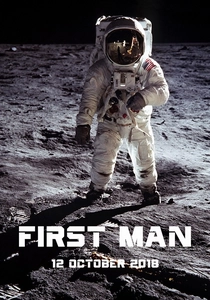
First Man (2018)
Description: This biographical drama delves into Neil Armstrong's life and the Apollo 11 mission, emphasizing the personal sacrifices and emotional toll of space exploration.
Fact: The film used practical effects and real spacecraft models to enhance authenticity. It was the first movie to shoot scenes in the actual NASA facilities used during the Apollo program.
 Watch Now
Watch Now 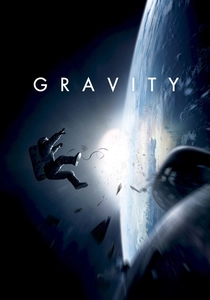
Gravity (2013)
Description: A visually stunning thriller about an astronaut stranded in space, dealing with isolation, fear, and the struggle to return home. It emphasizes the fragility of human life in the vastness of space.
Fact: The film's opening 17-minute shot was achieved using a combination of CGI and practical effects. It won seven Academy Awards, including Best Director for Alfonso Cuarón.
 Watch Now
Watch Now 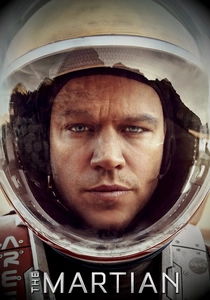
The Martian (2015)
Description: A story of survival and resilience on Mars, showcasing scientific ingenuity and the human will to overcome isolation and adversity in space.
Fact: The film's depiction of Martian landscapes was based on real NASA data. Andy Weir, the author of the original novel, was a computer programmer who wrote the book as a free online serial.
 Watch Now
Watch Now 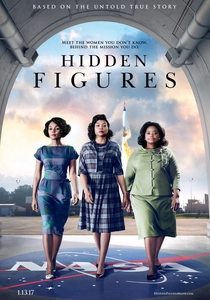
Hidden Figures (2016)
Description: This film highlights the untold story of African-American women mathematicians who played crucial roles in NASA's early space missions, celebrating their contributions and resilience.
Fact: The movie was based on Margot Lee Shetterly's non-fiction book of the same name. It was nominated for three Academy Awards, including Best Picture.
 Watch Now
Watch Now 
